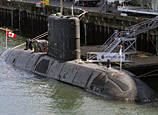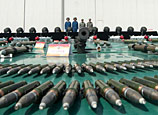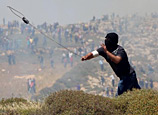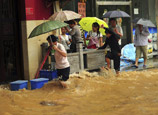
But knowing you have done your best to meet a challenge, to not give up, brings its own rewards. I still continue to enjoy this work tremendously. It is an honor and a privilege to be given this position to serve the world's population.
PD Online: Amoy Gardens was the severe SARS affected area in Hong Kong. It was renovated into a shopping mall after SARS. Some people suggested building a monument here to remind us of the incident and the victims. What do you think? Others commented that our memory about SARS is selected. Our collective memory about SARS was primarily the solidarity and success, while the pain was neglected. What do you think we should remember and forget about SARS?
Chan: I remember Hong Kong's empty streets and the masked faces of the few who ventured out. I remember the funerals of health care staff who died following their dedicated care of patients. I remember the sudden explosion of cases in the Amoy Gardens housing estate in early April 10 years ago and how that event prompted an unprecedented isolation order to prevent further spread. I remember, too, the almost instant expert speculation from abroad that the explosion of cases at the housing estate was proof that the SARS virus was now airborne. I remember the emergency investigation, conducted by the Department of Health and eight other government agencies that quickly proved that rumor false, calmed down the panic, and helped the people of Hong Kong cope.
But I also remember the clean-up campaigns, the volunteer groups and the civic initiatives of support. I remember collaboration from all parts of society, like the police who contributed an electronic tool, developed to track criminals, that greatly facilitated the tracing of patients' contacts to find those with symptoms and give them care.
We should not forget the SARS experience, both pains and gains. The fight against SARS was a triumph of dogged medical work. SARS was a wake-up call, not just to Hong Kong and Chinese mainland but to the rest of the world and what it showed us is that the world of infectious disease is ever present.
The International Health Regulations provide the legal framework for global surveillance and reporting of infectious diseases and a mechanism by which measures to prevent international spread can be enforced. The SARS outbreak provides firm evidence of the need for such regulations.
PD Online: You once said “Keep people in mind and you will not get the wrong direction”, and you also said “public health is very political”. How to understand them?
Chan: Yes, never forget the people. All of our debates and discussions have meaning only when they improve the health of people and relieve their suffering.
Personally, when I remember the people I have met during this job, two special encounters stand out. In 2009, I visited a malaria ward in Tanzania, a ward packed with small sick children and their mothers watching anxiously. I held the hand of a very sick child and felt the intensity of the mother’s anguish.
 |  |

















 Heavy rain affects traffic in S China
Heavy rain affects traffic in S China


![]()
